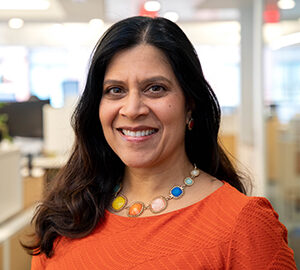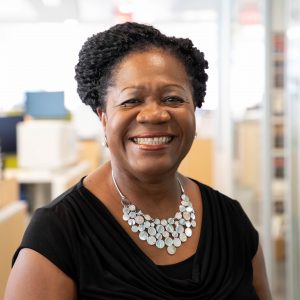The following presents brief highlights from seven cities in the Cities Addressing Basic Needs to Promote Postsecondary and Workforce Success cohort and mayoral quotes from a Summer 2021 Mayor’s Institute convening. NLC is launching a new cohort and invites cities to apply. Click here for the RFP!
For a city to become or remain economically competitive, the postsecondary success of its residents is critical. The percentage of residents with a degree or some type of postsecondary credential correlates with higher employment rates and people earning higher salaries. Unfortunately, students’ unmet basic needs often derail their efforts to attain postsecondary credentials which harms their ability to succeed in the workforce. Today, nearly 3 in 5 postsecondary students face either food insecurity, housing insecurity, or homelessness.
It’s eye-opening to note that over 95% of jobs created since the great recession have gone to workers with at least some college education. Jobs for high school graduates or less declined by 5.6 million in 2010 and only recovered 80,000 by 2016 (see graph). Our nation will likely see this trend repeat through the current economic crisis which underscores the importance of helping residents attain some postsecondary education credentials.
City Partnerships Meet Basic Needs to Help Postsecondary Students
With the support of The Kresge and ECMC Foundations, NLC has assisted twenty cities to work in partnership with their postsecondary institutions, workforce agencies, chambers, and community partners to remove barriers to basic needs such as food, housing, childcare, mental health services, transportation and digital access for postsecondary students.
Additionally, we recently hosted a Mayor’s Institute on Postsecondary Basic Needs with the mayors of seven of these cities to share their strategies and lessons with each other. Here’s what we learned:
- In Rochester, NY, Mayor Lovely A. Warren shared how over 25 city, postsecondary and community agencies partnered to host a virtual Opportunity Fair to connect residents to services and make job placements. Almost 100 people participated live and over 1400 viewed the recording. “We had to dismantle barriers such as financial hardships, housing, food shortages, childcare, language barriers, employment and transportation… barriers that many of our black and brown students needed to overcome to even pursue higher education and participate in workforce training programs that they otherwise could not. This initiative allowed us to connect the dots. Our team agreed that race and equity were at the core of all of our systemic issues, and together we could determine better outcomes for our residents.”
- In Philadelphia, PA, Mayor James Kenney described the city’s new scholarship to support increased retention and completion at the Community College of Philadelphia (CCP). “Before the pandemic hit, I proposed the Octavius Catto scholarship, an anti-poverty initiative to ensure that our city’s growth was inclusive and equitable. It combined last dollar tuition with $1500 per semester for basic need supports for all eligible community college students. We also focused on additional housing supports for CCP students and ensured more seamless alignment between CCP’s career counseling staff and the city’s workforce board. In January 2021, we launched our first cohort of 132 Catto Scholars, ranging in age from 18 to 50, who started on their postsecondary journey. This is truly one of our biggest accomplishments this year as we know the postsecondary preparation of our residents for living-wage jobs will be critical for moving our city towards an equitable recovery.”
- San Diego and Chula Vista, CA have worked together as a regional team engaging three postsecondary institutions in their boundaries to tackle housing barriers, specifically leveraging CDBG, CARES, and ARP funding to provide emergency rental assistance and helping students navigate the application process. To date, they received more than 12,000 applications and $40 million have been allocated. Mayor Todd Gloria noted, “Our cities have recognized that we have a rising inequality and unequal access to postsecondary education and workforce opportunities, particularly for working families in San Diego. This has hindered businesses’ ability to find qualified talent to do the work that they need. We need to work strategically to build a stronger local talent pipeline.” Mayor Mary Salas noted that the City of Chula Vista launched an emergency rental assistance program with $17 million available to students and families struggling to pay rent and utilities.
- The Oakland team developed a data-sharing process between Oakland Unified School District, Cal State University (CSU) East Bay and the Peralta Community College District to track graduating high school seniors who had been accepted into college, but didn’t enroll, and then address their basic needs to support their enrollment. Mayor Libby Schaaf shared, “The job opportunities are tremendous here, and we depend on our educational systems to match our students with those high-wage jobs. Our partnership is focused on three strategies: tracking data, coordinating services and amplifying resources to help students access the federal and state benefits that they qualify for. We are leaving millions of dollars on the table at a time when we could not need it more. Last year, our partnership provided computers, hotspots, food and other essentials to recent high school graduates who were headed to these colleges. As a result, 76% of our graduates entered these schools in the Fall of 2020, compared to 48% we saw across the district.”
- “We know that improving a city’s educational attainment level is good for the overall prosperity of the city”, said Caroline Altman Smith, deputy director of The Kresge Foundation’s Education Program. “We see this as both an economic development imperative, as well as a social justice imperative to ensure that everyone has equitable opportunities to achieve their full potential and to contribute to our cities and to our society.”
Get Involved
We encourage cities interested in tackling postsecondary basic needs to apply to join our new community of practice. You can find the RFP and recording of the information call here or send questions to Michael Bartlett at bartlett@nlc.org.









